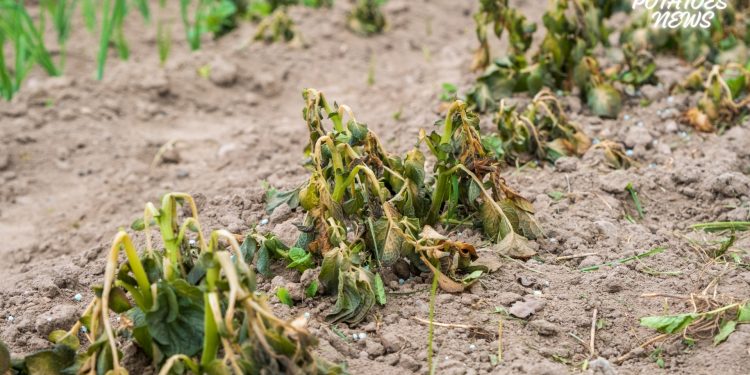The agricultural forecast for this week brings challenging news for potato farmers across Ireland and Europe as they grapple with unpredictable weather conditions. According to the latest reports, the mixed weather patterns persisting this spring have significantly disrupted planting schedules and crop progress, leading to concerns about potential supply shortages in the upcoming summer months.
In Ireland, a brief period of dry weather provided a small window for planting advancement last week. However, persistent wet conditions have once again halted planting activities, further delaying the season. With planting schedules already behind and stocks tight from the previous year, farmers anticipate a challenging summer ahead.
Similar challenges are observed across Europe, with cold weather and frequent showers delaying planting processes. Reports from Holland indicate damage to emerging crops, including potatoes and onions, due to recent hail storms. In Northern France, progress remains slow, with only a fraction of potato fields planted to date. While neighboring countries like Belgium and Holland have made some progress, uncertainty looms over this season’s yield due to weather disruptions.
Meanwhile, frosts in Turkey and Southern Russia have added to the woes of farmers. Sub-zero temperatures have damaged crops, including potatoes, vegetables, grapes, berries, and fruit trees, raising concerns about yield losses. Forecasts for the coming week predict another wave of cold weather, exacerbating the challenges faced by farmers in these regions.
As farmers navigate these adversities, strategic planning and adaptation to weather disruptions are crucial to minimizing impacts on crop yields and supply chains. The European potato industry braces for a season that demands resilience and innovation to overcome the hurdles posed by unpredictable weather patterns. Despite the uncertainties, farmers and stakeholders remain hopeful yet cautious, awaiting more stable conditions to continue their essential work in sustaining food production.
Conclusion:
The challenges faced by potato farmers in Ireland, Europe, Turkey, and Southern Russia underscore the vulnerability of agriculture to unpredictable weather events. From delayed planting schedules to crop damage from frosts, farmers are confronting significant hurdles in the 2024 season. Strategic planning, adaptation to weather disruptions, and innovation will be key to mitigating these challenges and ensuring a sustainable food supply. As the agricultural sector navigates these complexities, collaboration and support are essential to bolster resilience and overcome the impacts of climate variability.







